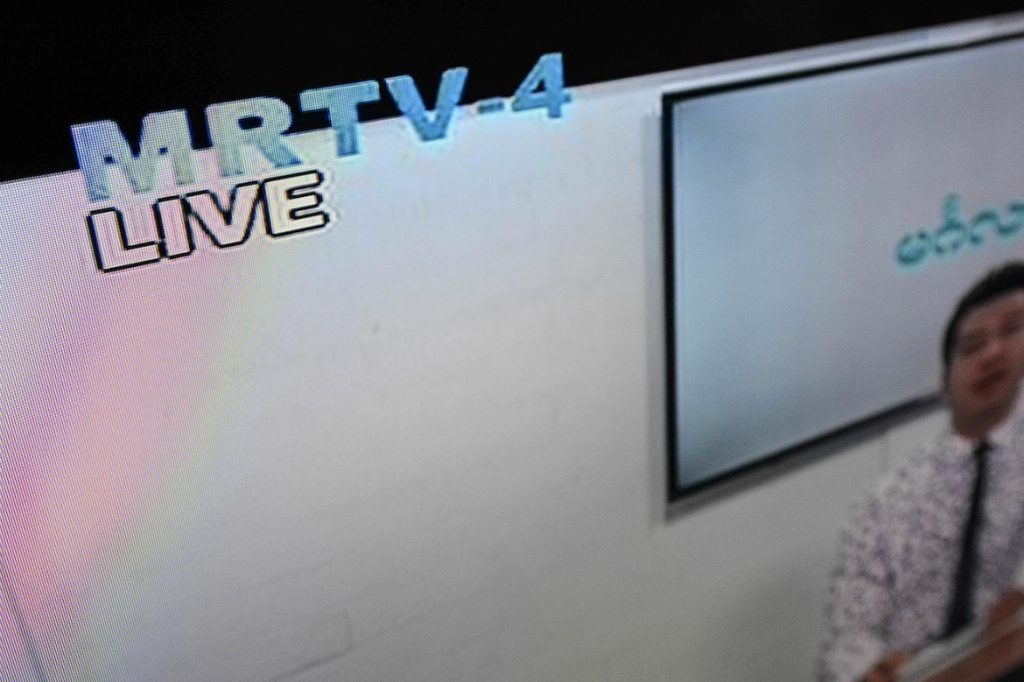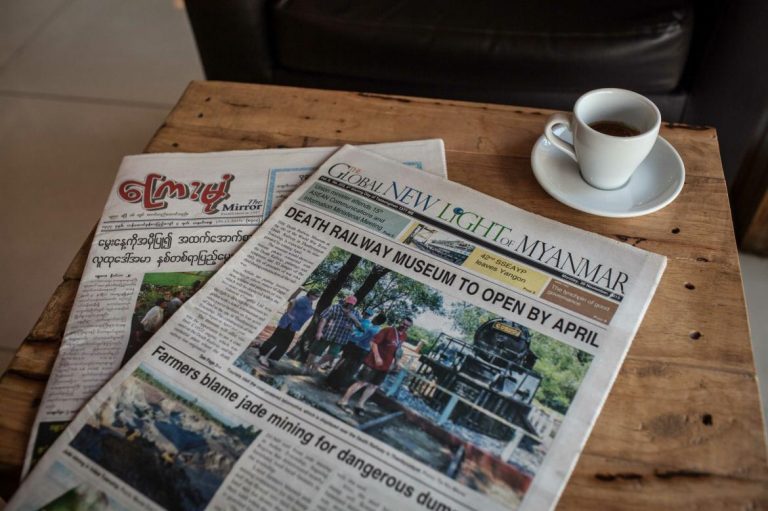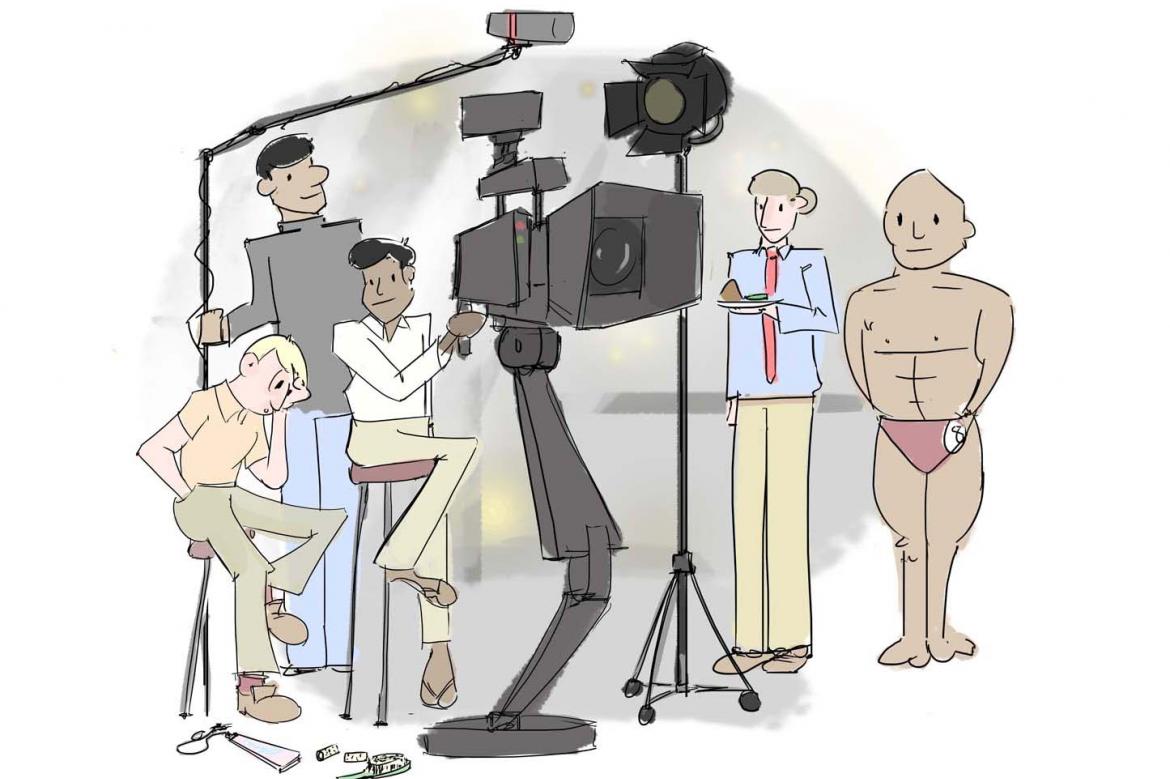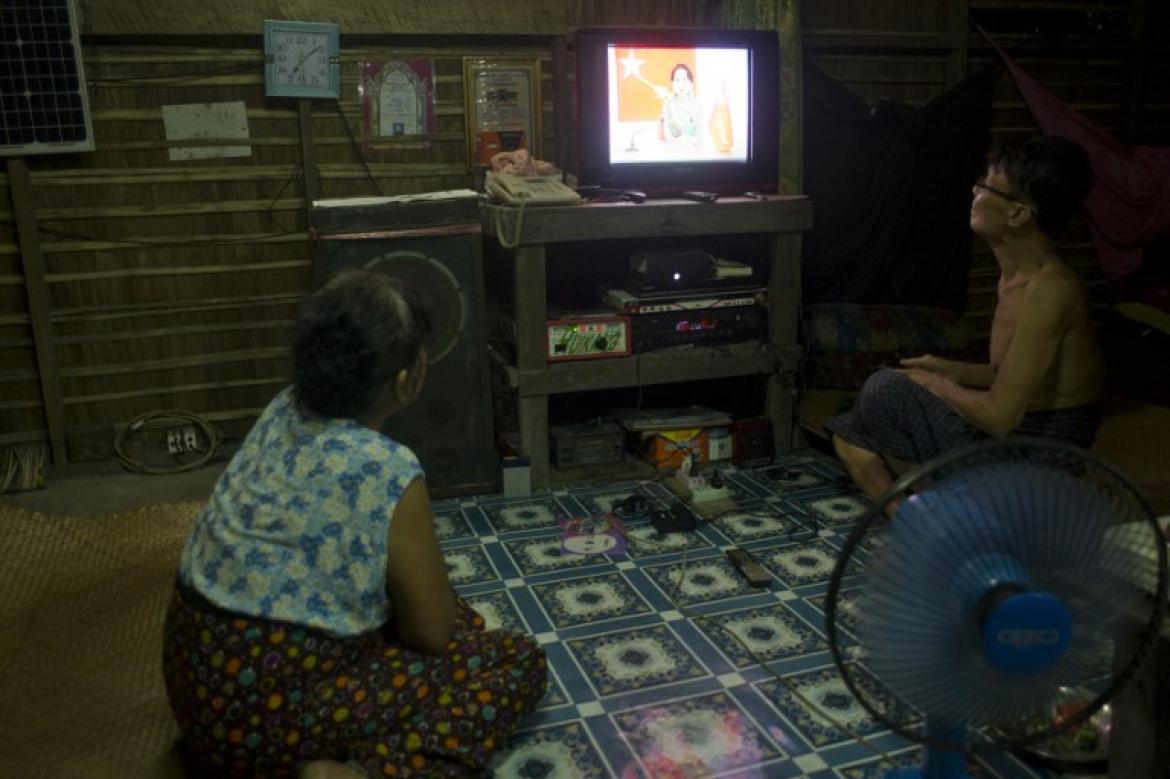By NYAN HLAING LYNN | FRONTIER
NAY PYI TAW — The government will open up the television broadcasting sector to competition with plans to offer more operating licences in the coming months, a senior official from the Ministry of Information has told Frontier.
U Myo Myint Maung, the ministry’s deputy permanent secretary, said prospective license holders would be invited to meet with officials soon to discuss the government’s plans for the sector.
“There is no need to submit an application. We won’t hold any meetings without letting all relevant people know. We will give comprehensive information of our plans, maybe at the end of this month or early next month,” he said last week.
The Broadcasting Law, which will govern the allocation of licences, has come under fire from media proprietors and journalists for numerous reasons since it was enacted in August 2015.
Support more independent journalism like this. Sign up to be a Frontier member.
The law assigns regulatory power to the Broadcasting Council, the majority of members in which are appointed by the president and parliamentary speakers, prompting fears that the granting of broadcasting licences will be subject to political influence.
Existing TV and radio operators, which will have to reapply for operating licences under the law, are already in control of over half the available broadcast spectrum, leaving new operators to compete over the rest.
“The ministry needs to create a fair competition between businessmen and end this monopoly situation,” said U Nay Tun Naing of Eleven Media, who is leading his company’s preparations to compete for a TV broadcasting licence. “[Current operators] are getting the upper hand without doing anything in accordance with the law. They are taking it easy while others are struggling.”
U Ye Min Oo, the general manager of SkyNet, which has held a virtual monopoly on the private TV broadcasting sector since 2010, said he was optimistic about the government’s plans for the sector, adding that he hoped “just and fair policies for all will emerge”.
The plan to authorise more private TV broadcasters originated during a planning session held in Nay Pyi Taw at the end of May.
At the meeting, new Information Minister U Pe Myint said the government was determined to “find a way that will best serve equal rights and development of the broadcast sector” before the government imposed new regulations or a change to the Broadcast Law.







